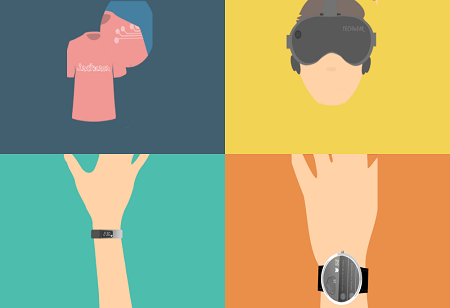The
healthcare sector is being affected by
wearable technology more than most other economic sectors. The use of wearable technology has helped physicians, nurses, and first responders stay connected and provide better services, and healthcare professionals have profited from all significant technical breakthroughs throughout history.Patients, however, are reaping even greater benefits from
wearable devices than healthcare practitioners. In general, wearable technology is decentralizing healthcare away from clinics and hospitals and empowering patients to take control of their own health.Having said that, in this article we have looked into the key segments where newly introduced wearable technology is already creating a massive difference.
Delivering Care at Point of NeedThere is a growing tendency toward providing healthcare at the "point of need," according to a new research published in the journal Student Health Technology Information. The place and period of time when patients find themselves in need of medical care are described in this term.Whether most healthcare takes place in clinical settings, the great majority of people face health problems while at home or at work. But if medical care isn't delivered just where it's needed, there are logistical inefficiencies that can be expensive or even fatal.This is where wearable technology, such as smart watches, is important in giving medical personnel remote access to real-time patient information. The development of wearable technology in healthcare is also being significantly aided by smart textiles, and as time goes on, it's possible that smart fabrics will provide point-of-need treatment even more than smart watches already do.
Promoting Self-care and AwarenessEnabling patients to gain awareness of their own health and well-being is a better approach than funneling them to the healthcare environment. As, the more patients take their health ontop their own hand, the easier it will become to avoid major medical emergencies and streamline routine medical care.Already, inexpensive wearable devices can provide information on critical health related factors like — heart rate, the number of steps taken, sleep duration, etc. The next generation of smartwatches will even be able to provide more in depth information on different factors such as – cardiac irregularities, quality of sleep, etc.Since people feel safer when they are more informed about their health, wearables may potentially be lowering medical visits caused by hypochondria. As hypochondria puts a lot of strain on the healthcare system, persons who are more informed about their physical and mental health are less likely to pack hospitals and family doctor's offices.Wearable devices enable people to confirm the seriousness of their medical emergency and take the necessary measures when significant medical events actually occur. When they notice medical emergencies, several wearable devices even take the initiative by instantly notifying first responders.
Monitoring Critical PatientsMany healthcare professionals are reluctant to allow their patients to leave clinical settings when serious medical issues are present. But going home might bring about a level of psychological health that commonly proves essential for recuperating from ailments.In addition, hospitals can be a dangerous place for people who suffer from autoimmune diseases or other ailments that could be made worse by contact with microorganisms. The objective of moral medical professionals has always been to allow patients to go home as soon as possible, and the most recent generation of wearable technology is making this crucial transition simpler.For instance, modern wearable devices let doctors keep an eye on patients from a distance. Now, even when they are hundreds of miles away from their patients, nurses and physicians can keep track of their vital signs. Even when cellphones and other communication devices aren't practical, medical professionals may keep in regular contact with their patients thanks to wearable technology.Wearables can also allow medical professionals the ability to directly operate medical equipment that have been put in or on the bodies of their patients thanks to the strength of Bluetooth and other wireless communication technologies.
Way To Decentralizing HealthcarePatients who would otherwise have avoided the contemporary medical system can receive real treatment in the comfort of their own homes thanks to wearable technology.The decentralized approach to healthcare that wearable technology is bringing about benefits patients of all ages, including those who adhere to modern allopathic medicine to the letter.Centralizing healthcare in hospitals and other clinical care facilities is not only ineffective; it also encourages the spread of infectious diseases, as the current COVID-19 epidemic has amply demonstrated. The 21st century's rallying cry for technological innovation is decentralization, and new developments in wearable technology's healthcare advantages are helping to make this shift toward improved medical care efficiency and increased patient freedom.
